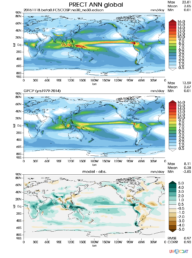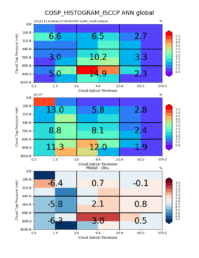E3SM Diagnostics v1.5.0

The E3SM project is pleased to announce the release of version 1.5.0 of the E3SM Diagnostics package.
A modern, Python-based diagnostics package for evaluating earth system models, the new package is modeled after the National Center for Atmospheric Research’s (NCAR’s) atmosphere diagnostics package. However, the E3SM package is flexible enough to allow for the addition of new observational datasets and new diagnostic algorithms. The figures are modifiable, the installation, configuration and execution are easier, and it uses multiprocessing to run faster. Another significant difference is that E3SM_Diags developers maintain an updated observational data repository and add the most recent datasets to the repository as they become available. As a community tool, it supports and accommodates the CMIP conventions.
v1.5.0 New Features
- E3SM_Diags can now be run within a container, in addition to being manually installed and run. Containerization technology allows a process and its dependencies to run in isolation. Furthermore, it simplifies the user installation process, avoids unexpected installation failure, and streamlines software distribution across various machines.
- The package can use Shifter, the container runtime used at NERSC. As one example, see the Quick Start Guide to use Shifter on NERSC’s Edison computer system.
- The auxiliary script to run a container,
e3sm_diags_container.py, supports Docker and Shifter. - Singularity support will be added in an upcoming release. Singularity enables users to have full control of their environment since its containers can be used to package entire scientific workflows, including software, libraries, and even data.
- A quick start guide will be added for Docker and Singularity soon.
- Scripts were added for creating time-series of observational data.

An example of 2D histogram plot using COSP simulator output
Documentation and code
- Full documentation:
- E3SM Diagnostics GitHub repo:
- Online Tutorial:
- Jupyter notebooks with climatology files as inputs:
Contact:
Jill (Chengzhu) Zhang, Zeshawn Shaheen, Chris Golaz,
Lawrence Livermore National Laboratory


